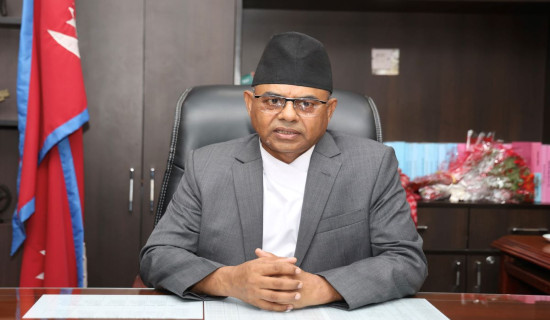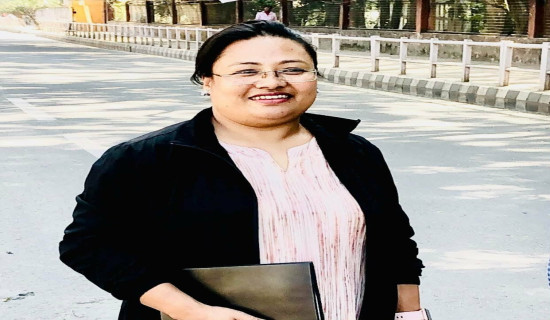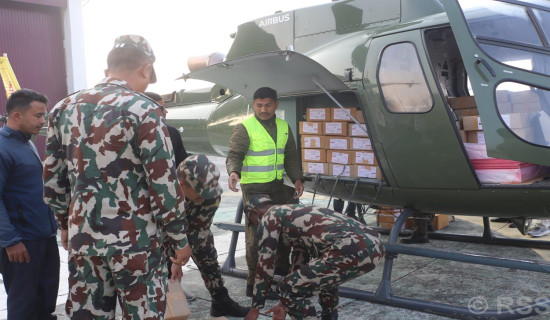- Thursday, 26 February 2026
Civic Vigilance Nurtures Democracy
Democracy has always been the most desired polity right from the beginning of human civilisation. Democracy is not merely an ideology or system but the process of decision-making for the greater good and interest of the people. Democracy has thus been a modern day’s political lingua franca across the world, which has to do more with public delivery. If regimes and governments fail to deliver and live up to the general expectations of the people, they lose the very essence of democracy.
Democracy is, thus, a system of efficient and transparent functioning of the government. However, demagoguery is on the rise in different parts of the world in the name of democracy. Demagogues are trying to take advantage and dividing people in the name of race, nationalism, sex, religion and colour. Democracy is not the system that seeks to divide the people but it rather unites them. Democracy is the pluralist system under which all kinds of ideologies, races, ethnic and religious groups coexist and equally take part in the political decision-making. Democracy protects and promotes rights and interests of all people irrespective of their ethnicity, religion, colour and ideologies, wherein lies the beauty of democracy. In other words, democracy is the system of unity in diversity.
Third wave of democracy
In the late 20th century, the world witnessed an unprecedented surge of democratic movements across all continents and many countries adopted liberal and competitive democracy, which Harvard political scientist Samuel Huntington called as ‘the third wave of democratisation’. Another American Scholar Francis Fukuyama described this as the victory of western liberal ideology over the communist or socialist philosophy. However, this euphoria of 1990s started dying down with the dawn of 21st century. According to another American scholar Larry Diamond, the world is witnessing a democratic recession.
Many countries continue to be democratic in form but seem to have retreated to authoritarianism in essence. Even some ardent champions of democracy seem to be backsliding as authoritarian tendencies are on the rise. This has posed threat to democracy all over the world. All types of ideologies, systems and regimes tend to champion democracy and claim to be democratic. While western liberalists define democracy based on civil and political rights, individual freedom of citizens, periodic elections, multi-party political system, freedom of expression and assembly, Marxists call it mere fustian claims.
According to Marxists, real democracy depends upon people’s quality of life including the guarantee of food, housing, and employment to the people which in other words are called economic and social rights. While liberalists place more emphasis on individual liberty, Marxists view that people need to live quality life in order to exercise their civil and political rights. Whatever the arguments and counter arguments about democracy, it is the political system in which people have their say in the governance. In democracy, people’s elected representatives run the system and make decisions for the larger interest of the people. Periodic elections are held to choose people’s representatives for running the country and system.
Periodic elections are the fundamental feature of democracy through which people exercise their free will to choose their representatives who run the country on behalf of the people. This is why, according to Abraham Lincoln ‘democracy is the government of the people, by the people and for the people’. Rhetoric alone does not make any system democratic. Even some history’s most notorious dictators like Hitler and Mussolini, too, claimed to be democratic and rose to power in the name of upholding and protecting people’s genuine interest. It is the practice and delivery that, in essence, determine the quality of democracy.
Political parties are the key actors and their behaviours play essential role in the functioning of democracy. Democracy is also a political culture in which people are placed at the centre while leaders demonstrate high degree democratic culture both in principle and practice. However, there has been a marked deficit of democratic culture in parties and leaders. As a result, democracy is under threat not from guns and military boots and bullets but from the behaviour and actions of the political leaders. People’s trust in political parties and leaders is declining globally. The overt partisan and personal interests at the expense of people’s overall interest has been general phenomenon in recent years.
As this trend continues, politics is being criminalised while crimes are being politicised in the name of democracy. This is not the case of a particular country but general feeling of people all over the world and more so in emerging democracies of the Global South including Nepal. Democracy is the system that needs constant nurturing. Democracy is nurtured and developed through good conducts and democratic practices. Democratic institutions are necessary in order to maintain checks and balances which is absolutely necessary for nurturing democracy.
Check and balance
In the absence of perfect checks and balances, democracy turns into demagoguery which has been the case in several countries. Similarly, careful vigilance from civil society is yet another necessary component for a mature democracy, which can be done only when strong and vibrant civil society exists. But the trend of misusing and manipulating such institutions is in vogue by parties and people in power, which is a matter of serious concern. Nepal’s case is also not very different. Nepal’s democracy is relatively young. It’s been more than seven decades since democracy first dawned in Nepal in 1951. However, the democratic system came to an end within a decade of its chaotic exercise after the king imposed his authoritarian rule.
Nepal again entered into a dark age of king’s absolute rule in which parties and political activities as well as fundamental rights were summarily restricted which continued for three decades until democracy was restored in 1990 following a mass movement. As the king attempted to derail democratic process time and again, monarchy was finally abolished and republican system ushered in Nepal in 2006 for which credit mainly goes to the Maoists’ decade long insurgency and the joint people’s movement of seven-party alliance. Now republican and inclusive democracy is here with us, which needs to be further nurtured and consolidated. For this greater degree of transparency, accountability on the part of leaders and greater vigilance from people are crucial.
(The author is former editor of this daily and former ambassador to Denmark). lamsalyubanath@gmail.com)

















